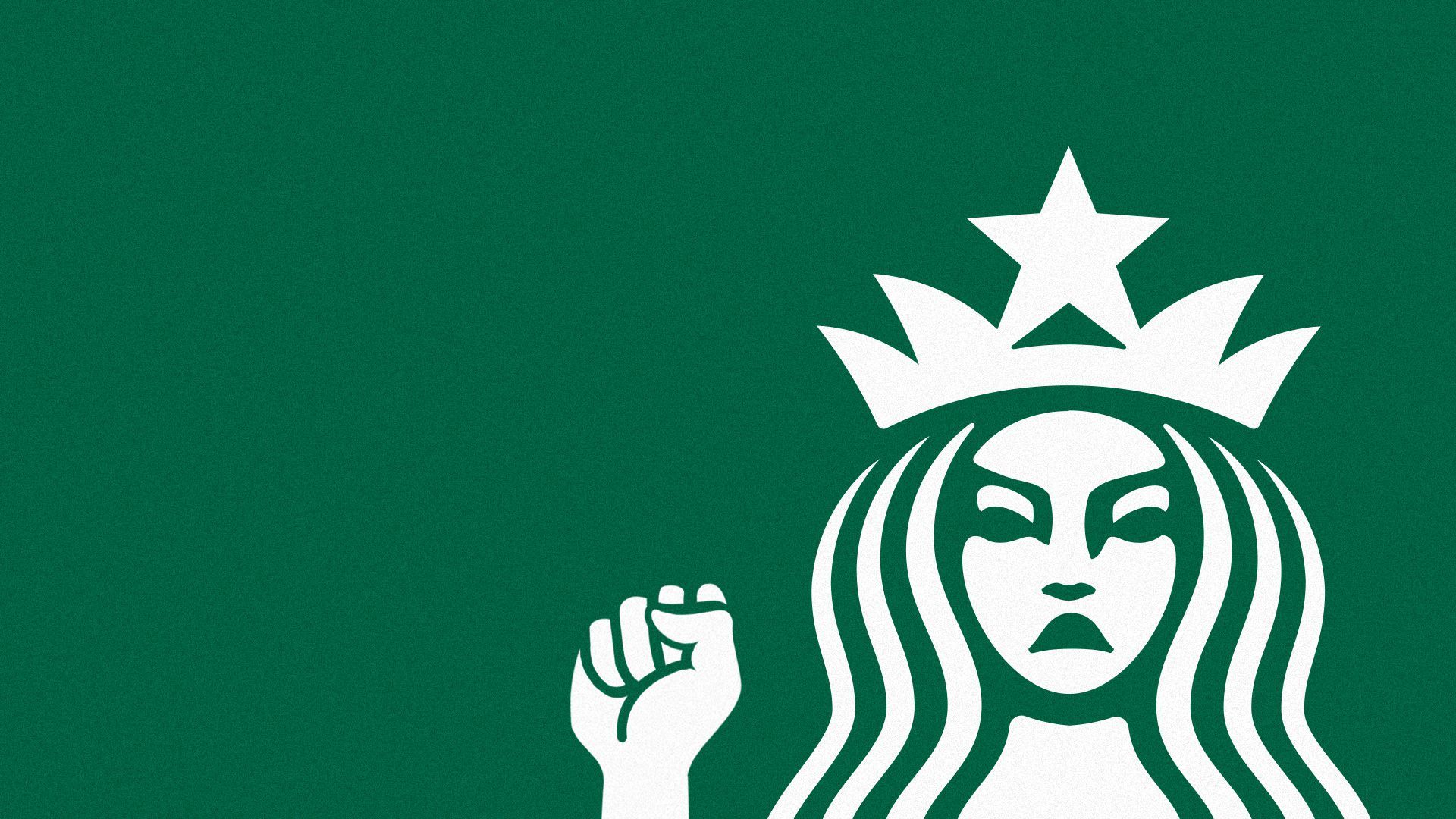New Starbucks CEO will set the tone on worker unionization efforts
Add Axios as your preferred source to
see more of our stories on Google.

Illustration: Aïda Amer/Axios
Starbucks is poised to get a new CEO — and the pick could signal whether the company takes a hostile stance or welcoming approach toward sporadic unionization efforts at its coffee houses.
Why it matters: Starbucks’ reputation as a benevolent chain is on the line — and the fate of the labor movement’s attempt to get a foot in the fast-food door is at stake.
Driving the news: Starbucks CEO Kevin Johnson announced Wednesday that he would relinquish his post beginning April 4, becoming a special consultant through September.
- Starbucks doesn’t have an immediate replacement, so ex-CEO Howard Schultz will slide back into the role on an interim basis until the company announces a permanent leader — likely in the fall.
- "Unionization publicity could be a factor pushing the company to look externally," Cowen analyst Andrew Charles wrote Wednesday.
State of play: In a complaint, the National Labor Relations Board accused Starbucks “of retaliating against two employees who sought to unionize their coffee shop in Phoenix,” the Washington Post reported Wednesday.
- "Kevin’s decision to retire is not related to this," Starbucks spokesperson Reggie Borges tells Axios in an email.
- Johnson had made comments indicating opposition to organizing efforts.
- Schultz, for his part, has a history of downplaying the need for unionization at Starbucks due to the company's close working relationship with employees.
The big picture: Starbucks’ ultimate choice for its new CEO will send a message on how it intends to approach unionization efforts as organized labor advances.
- “This is a pivot point for the company,” Robert Bruno, an employment relations professor at the University of Illinois, tells Axios.
- “What we’ll learn is whether or not the company wants to take on the old fixtures of a corroded and old-school approach to employment and to firm identity — or whether they really want to stay up front and out front as this more insightful, thinking, cooperative” company.
Context: With employees feeling increasingly empowered, Starbucks is coming under pressure to give in to their demands.
- In a letter sent Tuesday to Starbucks leaders, a coalition of more than 75 major investors, including Trillium Asset Management and the New York City comptroller, called on Starbucks to take a neutral approach with labor organizers.
- “Benefits may include lower turnover, more resilient and risk-tolerant operations, more effective feedback loops, higher employee satisfaction and productivity, and, in turn, higher quality and more innovative products and services,” the investors wrote.
Of note: Facing worker shortages and inflation concerns, Starbucks announced in October that it would raise its minimum wage for hourly baristas to a range of $15 to $23 in summer 2022.
The bottom line: The status of the relationship between Starbucks and its workers is closely linked to the selection of the company’s next CEO.
- “If they’re paying attention to what workers have said in the stores that have organized, it’s been far more about having a voice than it is negotiating a pay structure that somehow is outside the industry,” Bruno says.
